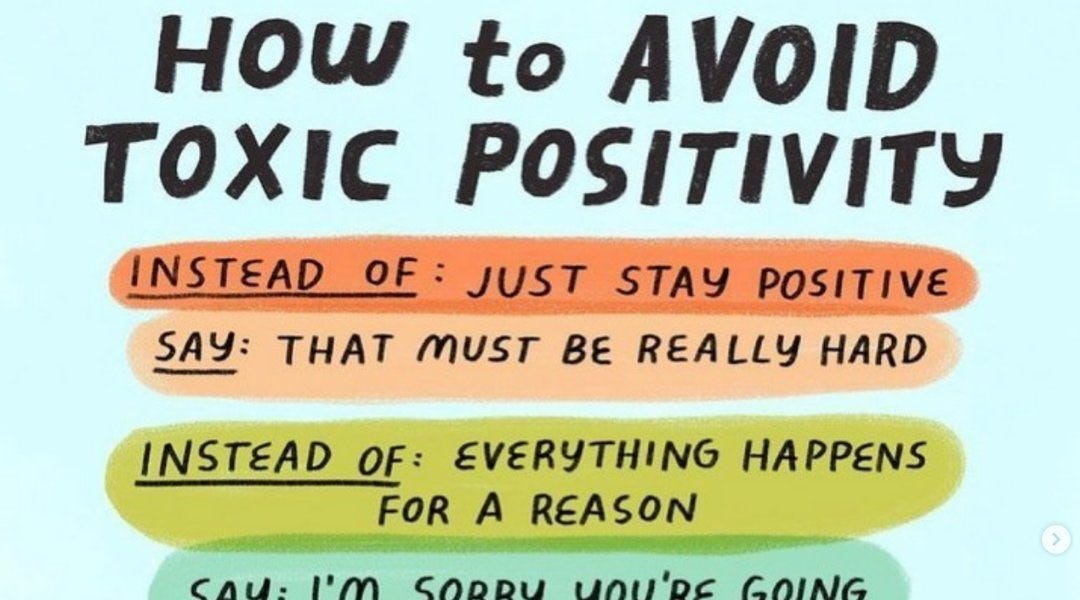

Aspire's Awareness Academy News
February 2024
TABLE OF CONTENTS:
For my adult subscribers:
Understanding Procrastination: Uncovering the Why and How to Overcome It
Mindfulness and Mediation ideas and suggestions
Bonus Article
Upcoming Opportunity Events
For my teen subscribers:
How to focus on only the things you can control
Empower yourself with Executive Funtion Skills
App Recommendation
Pomodoro Method
Calming and Destressing Resource of the month
NOTE FROM COACH AMY
As February progresses, many of us who set resolutions or goals in early January may be experiencing fatigue, which often leads to procrastination. Personally, I've been procrastinating on connecting with people to grow my business. What's fatiguing me? Before I truly grasped it, I conducted some research and engaged in self-honesty. Here's what I discovered: Putting myself out there, being vulnerable, and striving to give 100% each day is exhausting, and rejection is a motivation killer! Thus, my procrastination revolves around my mood, anxieties, fear of failure, inertia, and low motivation due to perceiving low-value outcomes.
Now that I am self-aware, I can start to address my procrastination. I encourage you to read the article below to see how we can get past our procrastinating behaviors. Additionally, I recommend watching Tim Urban's Ted Talk; you will not be disappointed. Discover the concepts of the Gratification Monkey and the Panic Monster!
ADULTS
Understanding Procrastination: Uncovering the Why and How to Overcome It
Procrastination is the tendency to delay or postpone important tasks or decisions by engaging in less essential or more enjoyable activities. This behavior commonly leads to heightened stress, decreased productivity, and missed opportunities. It stems from various factors such as fear of failure, perfectionism, lack of motivation, or poor time management skills.
Individuals who struggle with procrastination often experience negative consequences, such as rushing to complete tasks at the last minute, feeling overwhelmed, and observing a decline in the quality of their work. Over time, habitual procrastination can significantly impact one's overall well-being, resulting in increased stress and diminished self-esteem.
Overcoming procrastination involves identifying the underlying causes and implementing strategies to combat it. This can involve setting realistic goals, breaking tasks into smaller, more manageable steps, refining time management skills, and finding ways to stay motivated and focused on the task at hand.
A comprehensive list of factors that might lead to procrastination includes:
- Prioritization of short-term mood, favoring immediate gratification over long-term well-being.
- Task aversiveness, finding certain tasks frustrating, boring, or otherwise unpleasant.
- Anxiety and fear, stemming from concerns about criticism or failure.
- Feeling overwhelmed by a multitude of tasks, leading to uncertainty on where to start.
- Perfectionism, refusing to accept work with any flaws.
- Disconnection from the future self, viewing delayed consequences as someone else's problem.
- Discounting delayed outcomes, attaching less value to rewards received in the future.
- Low motivation due to perceiving low-value outcomes.
- Expected effort, particularly for daunting tasks.
- Inertia, or the tendency to continue current activities rather than begin new ones.
- Abstract goals that lack clear definition.
- Cognitive biases, such as being unreasonably pessimistic about odds of success.
- Time management issues, such as failure to prioritize tasks effectively.
- Problematic traits like impulsivity.
- Underlying behaviors including rebellion against authority figures.
- Underlying conditions such as depression.
- Low energy caused by lack of sleep or exhaustion.
- A problematic environment filled with distractions.
To combat procrastination, several strategies can be beneficial:
1. Setting clear goals: Defining specific, achievable objectives provides a sense of purpose and direction.
2. Creating a schedule: Establishing a structured timetable for tasks and activities helps maintain focus and discipline.
3. Prioritizing tasks: Identifying the most important and time-sensitive tasks can prevent feeling overwhelmed and deter procrastination.
4. Utilizing rewards: Offering yourself small rewards upon completing tasks can serve as positive reinforcement and motivation.
5. Seeking accountability: Sharing your goals and progress with someone else can increase your commitment to staying on track.
6. Embracing a growth mindset: Recognizing that challenges and setbacks are opportunities for learning and improvement can prevent the fear of failure from leading to procrastination.
Implementing these strategies consistently can help individuals maintain motivation and reduce the likelihood of procrastination.
Shetty's thoughts on procastination is worth the 1 min and 10 secs listen!
A Bonus Article on Toxic Positivity. Toxic Positivity Exists!
Monthly Mindfulness and Meditation Recommendations🙏: Basic Breathing Techniques
Give the gift of 30 minutes to yourself, and participate in this body scan by the great Jon Kabat-Zinn
Breath in for 5, hold it, breathe out for 7 and repeat- follow along with @drali
What's Coming Up for The Adults of New Milford, CT and Neighboring towns?
Brewing Empowerment Over Coffee is in-person and free to the community.
This Book Talk is in-person and located in New Milford, CT.
THIS BOOK TALK BELOW IS VIRTUAL
This speaking engagement is in Norfolk, CT- it is a beatiful ride!
Teen Talk
How to focus on only the things that you can control
Reducing Stress
In a world filled with uncertainties and ever-changing circumstances, focusing on what you can control is essential for reducing stress. While it's natural to worry about various aspects of life, understanding that some things are beyond your control is a powerful realization. By shifting your attention to actionable items within your reach, you can nurture a sense of empowerment and reduce unnecessary stress.
One crucial method to achieve this focus is through self-awareness. Identifying the areas where you have genuine influence allows for a more targeted approach to facing challenges. Encouraging yourself to stay mindful of your thoughts, actions, and responses in various situations can help you discern between what you can alter and what you need to accept. By directing energy toward personal growth, relationships, academic pursuits, and extracurricular activities, you can regain a sense of agency and feel more in command of your life.
To identify the areas where you have genuine influence, reflect on your daily experiences and interactions. Ask yourself: What aspects of my life can I actively change or impact? This could include your attitude, effort, choices, and how you treat others. You better understand where your efforts can be most effective by pinpointing these areas.
Staying mindful of your thoughts, actions, and responses in different situations is also essential. Practicing mindfulness, which involves being fully present in the moment, can help you recognize when facing a situation beyond your control. By acknowledging that some things cannot be altered and learning to accept them, you can focus your energy on areas where you can make a difference. Additionally, self-awareness and recognizing your emotions in specific situations can empower you to respond in ways that align with your values and long-term goals. This self-awareness lets you discern between what you can change and what you must accept.
By understanding what you can control and focusing on actionable items within your reach, you build a sense of empowerment and reduce unnecessary stress. This approach can provide a tangible and positive impact on your overall mental well-being. As you direct your energy towards areas where you can make a difference, you'll likely experience a decrease in the mental strain from worrying about circumstances beyond your control. This shift allows for a more proactive and balanced approach to life's challenges, leading to a greater sense of personal agency and inner calm. Acknowledging what you can influence and letting go of what you can't change can lead to more peace of mind, resilience, and a healthier outlook.
Circle of Control Directions
Above is a strategy you can use when you are feeling overwelmed and stress is starting to take over. When you are in that moment when you feel you have to problem solve or manage a situation grab a piece of paper and a writing utensil (or do it electronically) and draw a circle in the center. Write about all the things in the situation that you do not have control over on the outside of the circle. On the inside write down all the things you do have control over. Focus only on those things that you control. For many this exercise reduces stress almost immediately when they see this visual.
Resources for Teens
Empower Yourself with Executive Function Skills
Executive function skills are cognitive abilities that help individuals set goals, plan steps to achieve those goals, and complete tasks. These skills also enable teens to manage their time effectively, pay attention, switch focus, and remember details. Additionally, they play a crucial role in regulating emotions, self-monitoring, and controlling impulses. Ultimately, executive function skills empower teenagers to navigate the complexities of school, work, and daily life with greater confidence and success.
This month we will focus on Planning and Focus:
This months app recommendation
There is an app for that!
Here is what Analise R. has to say about this app, “I use Alta Ipsum most for planning long- term assignments - it keeps me honest and forces me to start studying more than just the day before! It also makes the task of studying less daunting because it breaks it up into smaller chunks.”
This app is the ultimate tool for homework management, pacing out long-term assignments and mapping out when your tests are so you are not caught off guard.
This months study skill suggestion:
The Pomodoro Method
The Pomodoro technique is a popular time management method that helps individuals enhance focus and productivity. The technique involves breaking work into intervals, traditionally 25 minutes in length, separated by short breaks. After four consecutive work intervals, a longer break is taken. This structured approach aims to improve concentration and efficiency by allowing brief, regular rests, thereby preventing burnout and maintaining mental freshness. The Pomodoro method is a simple yet effective way to manage time, prioritize tasks, and maintain a healthy work-life balance.
Your calming and destressing resources of the month
Check out Haven Inspire on Youtube: youtube/haveninspire
Aspire, LLC.
Aspire, LLC. is an empowerment coaching practice for adults and teenagers. Amy sees clients in-person, phone call and with Zoom. Contact Information:
19 Main Street, Ste 3, New Milford, CT 06776
Text or call at 860.222.0797
Email at amy@aspireself.com
(website under renovation, currently older version is accessible. New look coming soon!)
I help adults and teens cultivate their inner strengths and navigate their most complex challenges. Aspire's empowerment coaching fosters self-awareness and instills effective leadership skills so individuals can unlock their full potential and achieve personal growth.











